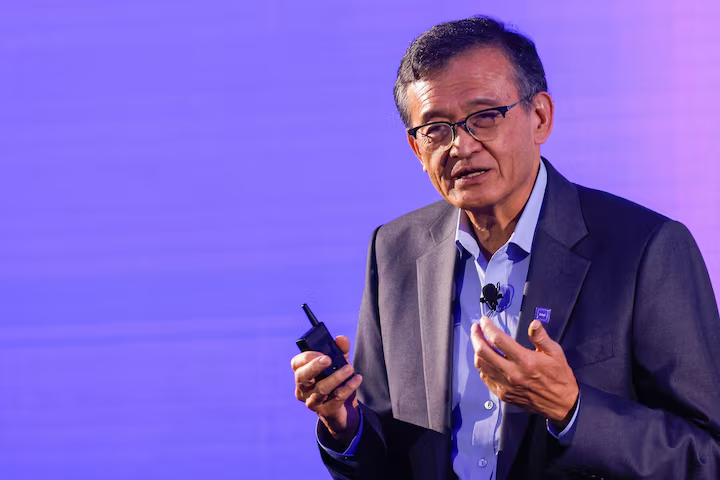U.S. President Donald Trump on Thursday called for the immediate resignation of Intel CEO Lip-Bu Tan, citing his deep financial ties to Chinese semiconductor and manufacturing firms.
Trump labeled Tan “highly conflicted” and insisted there was “no other solution,” amplifying ongoing national security concerns as Intel tries to regain dominance in the global chip market.
Tan, who assumed leadership in March, is facing mounting pressure following a Reuters investigation revealing that he or venture funds he controls have invested over $200 million in Chinese tech firms. Some of these entities, according to U.S. analysts, are directly linked to the People’s Liberation Army, intensifying scrutiny on Intel’s role in the U.S. defense ecosystem.
Trump’s post on Truth Social came just a day after U.S. senator Tom Cotton sent a letter to Intel’s board chair questioning Tan’s connections and a recent criminal settlement involving Cadence Design, Tan’s former company.
Cadence, under Tan’s leadership, sold chip design tools to a Chinese military university and has now agreed to plead guilty and pay $140 million in fines.
Between 2012 and 2024, Tan’s venture capital firm Walden International was a joint owner in at least 20 Chinese entities alongside government-linked investors from key tech hubs like Hangzhou, Hefei, and Wuxi, according to Chinese corporate filings.
Intel’s future now hangs in the balance. The company is central to U.S. ambitions under the 2022 CHIPS and Science Act, having secured $8 billion in federal subsidies to build fabrication plants in Ohio and other states. But this political storm risks destabilizing its fragile recovery plan.
Lip-Bu Tan, a Malaysian-born Chinese-American, has set aggressive targets to cut Intel’s workforce by 22%, slashing headcount to 75,000 by year-end. The company, whose market value has plummeted below $100 billion, is also reportedly considering exiting chip manufacturing altogether if it fails to secure a major AI chip customer.






















